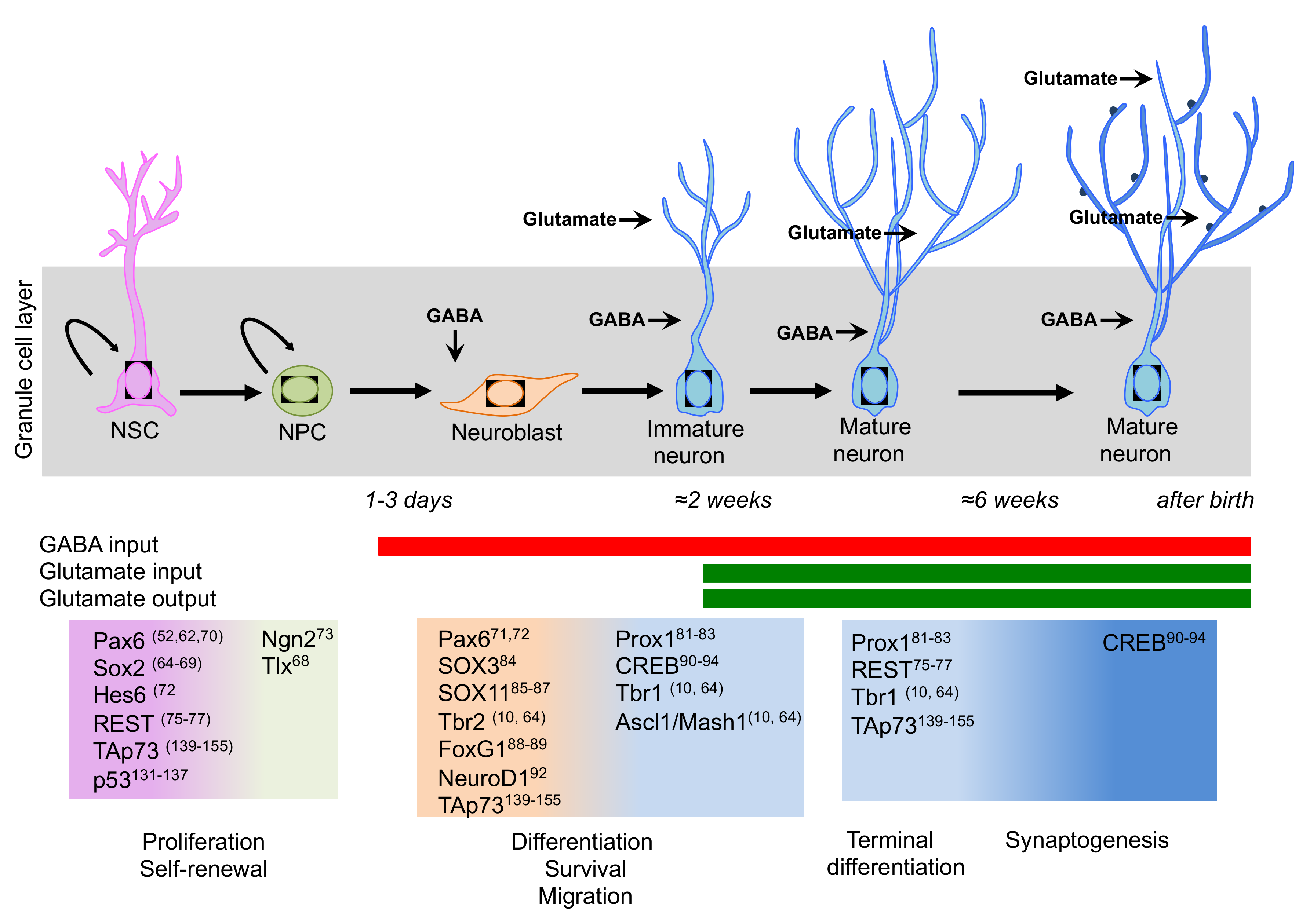This table depicts the general stages of developmental neurogenesis at Biology Diagrams
BlogThis table depicts the general stages of developmental neurogenesis at Biology Diagrams The advances presented by Pechnick et al. broaden the focus to urge further elucidation of cell cycle and its regulators in adult neurogenesis. Because cell cycle regulators, including p21, also control proliferation and survival of brain tumor stem cells, attempts to consider such regulators as "druggable" therapeutic targets require a Cell cycle-regulated multi-site phosphorylation of Neurogenin 2 coordinates cell cycling with differentiation during neurogenesis Development . 2011 Oct;138(19):4267-77. doi: 10.1242/dev.067900.

An appreciation of the importance of the Pechnick et al. research necessitates connecting the hypothetical dots between neurogenesis, cell cycle, and antidepressant effects, which this group has accomplished. As for other somatic cells, neuroblast proliferation is regulated during development by a balance of inhibitory and excitatory signals

Neurogenesis and the Cell Cycle Biology Diagrams
Once neurogenesis is complete, mature neurons do not divide. Herrup and Yang outline the evidence that, in order to achieve this, adult neurons must constantly hold their cell cycle in check, and The overall size of the brain is governed by cell cycle machinery. This is clearly demonstrated by the enlarged brains of mice lacking the rather ubiquitous cell cycle inhibitor p27Kip1 Fero et al. 1996, Nakayama et al. 1996.But as some parts of the brain tend to be larger than others, many cell cycle components are expressed in specific areas and control regional growth. An inhibition of cyclin-dependent kinases that lengthens, but does not arrest, neuroepithelial cell cycle induces premature neurogenesis. J. Cell Sci. 116, 4947-4955 (2003).

For a long time, it has been understood that neurogenesis is linked to proliferation and thus to the cell cycle. Recently, the gears that mediate this linkage have become accessible to molecular investigation. This review describes some of the progress that has been made in understanding how the mol … The adult neurogenesis in adult dentate gyrus has been divided into different developmental stages in which quiescent neural stem cells enter into the cell cycle (type 1 NSCs) and give rise to postmitotic neurons through three consecutive stages of intermediate progenitor cells (type-2ab) and neuroblasts (type-3), which migrate within the For a long time, it has been understood that neurogenesis is linked to proliferation and thus to the cell cycle. Recently, the gears that mediate this linkage have become accessible to molecular investigation. This review describes some of the progress that has been made in understanding how the molecular machinery of the cell cycle is used in the processes of size regulation in the brain
